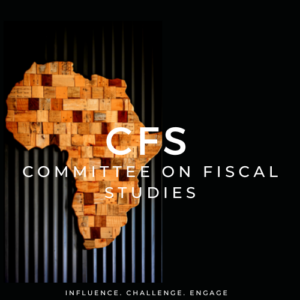
Economic Thinking and Economic Development in Africa – Past, Present and Prospects for the Future
YSI Africa East-Africa Hub
Start time:
September 5 @ 8:00 am - September 6 @ 5:00 pm
SAST
Location:
University of Nairobi
Type:
Local meet up
How to attend
Deadline:
17th June 2024
Local Partners
Description
It is approximately seventy years since the first country in Africa gained formal independence from colonial rule. Following the blowing of the ‘winds of change’ in the 1960s, when most countries gained independence, the last African country only achieved majority political rule in 1994. Since then, the drive by international institutions to aid the implementation of economic planning models aimed at ‘developing’ African economies has intensified. Accordingly, research on Africa’s economic history and growth patterns, transcending the colonial/post-colonial divide, continues to be the subject of much academic scrutiny.
In understanding the economic changes brought about by independence, Frederick Cooper and Randall Packard (1997), examine what they conceptualise as a shift from ‘colonial empires to less-developed countries’, with the latter being the economic classification ascribed to most African countries by many international institutions. They demonstrated then, in a manner still relevant now, that understanding Africa’s economic history should go beyond these ascribed categorisations to include the multifaceted process of (economic) knowledge produced about the continent. The question of who controls the narrative on Africa and African economies, why and to what end, has endured beyond the enquiries of the Ibadan School of Thought, as the Cooper and Randall observation that Africa is the ‘least able to generate its own academic knowledge’, lingers on (Paul Tiyambe Zeleza (2002), Mahmoud Mamdani (1998), Jeremiah O. Arowosegbe (2016), Grieve Chelwa (2021).
Methodologies used in creating and telling the story of Africa’s past, present and projections for the future are also questioned (Gareth Austin and Stephen Broadberry (2014), Johan Fourie et al. (2021), validating the call for academics to give urgency to African actors and the broader socio-political contexts within which economic classifications are framed. Relevant to the debate on the (under) development of Africa’s economies during different epochs is the appropriateness of measuring progress, or the lack thereof, through, primarily the National Income Accounting system, first introduced to Africa by Phyllis Deane in her measurement of the Gross Domestic Product (GDP) of British colonies in the 1940s (Phyllis Deane, (1948), (1953). Academics go on to question the suitability of the prescribed identikit economic planning models derived various statistical models, which often come as conditionalities attached to aid (Ha Joon Chang (2007), Alden Young (2014, 2018). Following the 2008 global financial crisis, the economic changes brought on by the COVID-19 pandemic, a looming debt crisis in the global South and the recent collapse of Banks in the global North (United States, (Silicon Valley Bank) and Switzerland (Credit Suisse)), academics continue to hunger for and explore various facets of new economic thinking to especially understand and seek answers to pertinent economic development questions
The YSI Africa and Economic Development Working Groups call for abstracts from young scholars working on the various facets of the economics discipline for this year’s Regional Convening (or East-Africa YSI Hub). To apply complete the form and include a 300 word abstract, a bio or CV and a motivation for a travel stipend where applicable, no later than 17 June 2024 at 12pm CAT.
Young scholars working on original research from any of the following sub-themes are encouraged to apply:
- The history of economic development in Africa
- The origins of economic thinking in Africa
- Economic modelling for economies in Africa
- Economic, developmental and political transformations
- International institutions and development financing in Africa
- Finance, Monetary and Fiscal Policies in Africa
- Debt, Financial Inclusion, Gambling
- Informal work, care economy, social security policies
- Gender, Race and Power Relations
- Decolonisation in Economics, South-South relations, De-dollarisation
- Post-Keynesian, Marxist, Structuralist, Feminist, Dependency theory approaches to economics
- Climate justice, Ecological Economics, Green transition
